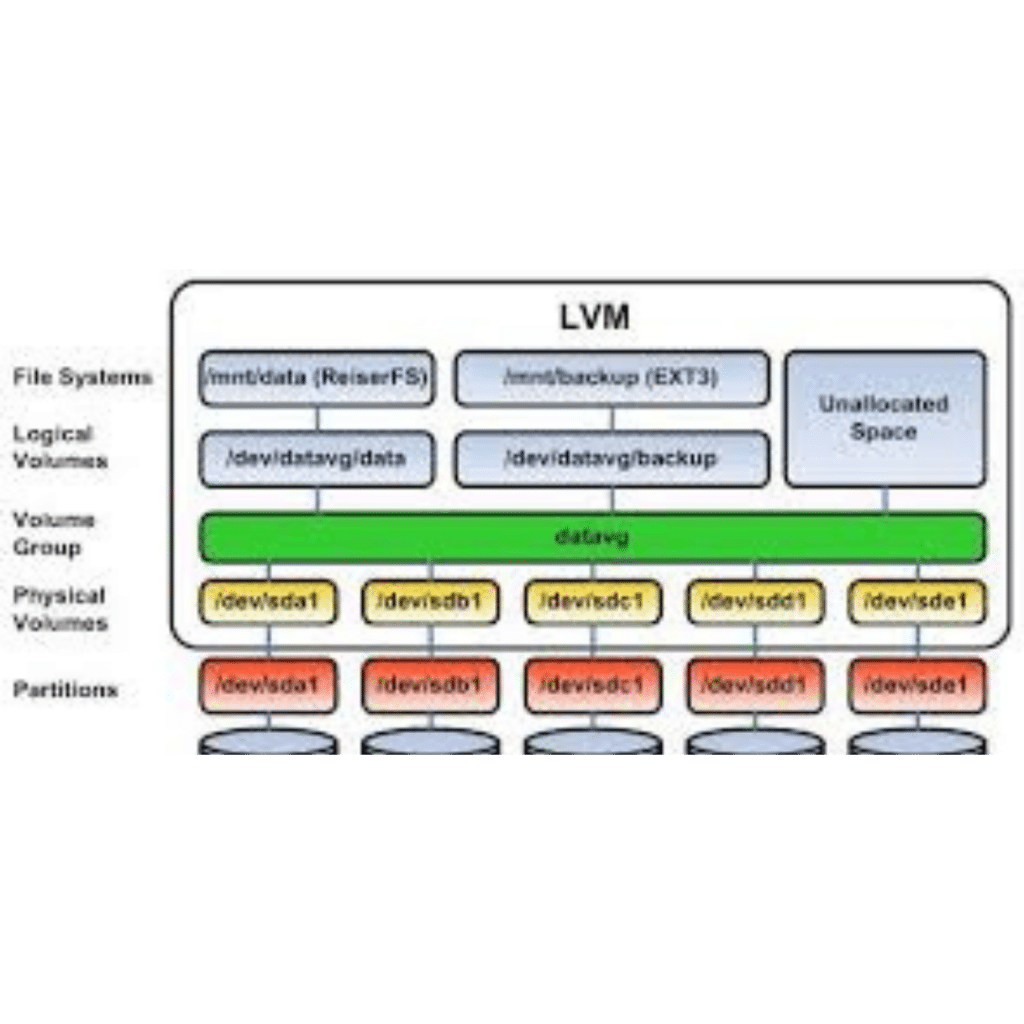
Logical Volume Management (LVM) is a method used in Linux to manage hard disk drives and storage devices. Moreover, it abstracts file systems from physical storage devices like hard drives It lets you resize volumes, create snapshots, and migrate data between physical devices without disrupting file systems or programs. For instance, you can add new physical disks to your system, allocate them to a volume group, and expand logical volumes to leverage the extra capacity without resizing partitions or moving data.
The primary purpose of LVM in managing disk storage is to offer flexibility, scalability, and improved utilisation of storage resources.
Some key aspects of LVM’s functionality include:
- Flexibility: Logical Volume Management allows administrators to easily allocate and manage storage space according to changing requirements. Logical volumes can be created, resized, or removed on-the-fly, which provide flexibility in adapting to evolve storage needs.
- Aggregation of Physical Volumes: LVM enables the aggregation of multiple physical storage devices (such as disks or partitions) into a single logical volume group. The system can then subdivide this pooled storage into logical volumes, simplifying management and improving utilization.
- Dynamic Volume Resizing: LVM supports dynamic resizing of logical volumes, allowing administrators to increase or decrease the size of volumes without interrupting services or requiring complex partition resizing operations.
- Snapshot and Backup: LVM lets administrators produce point-in-time copies of logical volumes for backup or testing. Snapshots provide fast backups and recovery without affecting operations.
- LVM improves performance and data redundancy with data striping (RAID 0) and mirroring (RAID 1). These features boost data availability and reliability.
In Linux environments, LVM serves as a versatile and powerful tool for managing disk storage. It simplifies physical storage device management, providing administrators with more control, flexibility, and efficiency in storage allocation and management.
Contact Skynats for expert assistance on “The Importance of Logical Volume Management.” Skynats offers specialized guidance to optimize storage resources efficiently, ensuring seamless performance and data reliability. Our team provides tailored solutions to harness the full potential of Logical Volume Management, enhancing system scalability and resilience.

